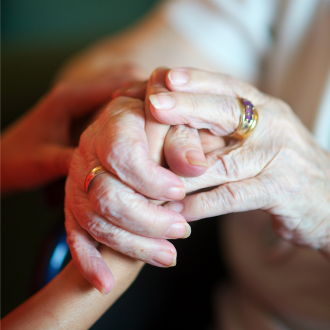GPs to ensure dying patients have individual care plans as part of Liverpool Care Pathway replacement

GPs must help ensure every patient in their care who is dying has an individual care plan in place, including providing support to eat and drink as long as they want to, as part of the replacement for the Liverpool Care Pathway announced today.
New standards set out by the Department of Health today say care for the dying should put more emphasis on giving tailored, compassionate care rather than focusing on processes and protocols – one of the criticisms levelled at the Liverpool Care Pathway.
The announcement comes after an independent review of the Liverpool Care Pathway in 2013, led by Baroness Julia Neuburger, found the pathway was in some cases being implemented inappropriately in hospitals, with relatives and carers not involved in discussions about the care plan and patients having food and liquid withheld without reason. The review advised the pathway should be phased out and replaced with an alternative standard of care.
The replacement endorses five new ‘Priorities for Care’ on which healthcare professionals are expected to base the care of someone who is approaching the end of life.
The priorities strengthen the importance of communicating sensitively that a person may die within the coming days or hours, both with the patient themselves and those important to them, and then making sure the dying person and their loved ones are involved in decisions about their care, with these decisions being reviewed regularly.
One of the priorities states: ‘An individual plan of care, which includes food and drink, symptom control and psychological, social and spiritual support, is agreed, co-ordinated and delivered with compassion.’
The DH also accepted the recommendation that a ‘named consultant or GP, respectively, should take overall responsibility for the care of patients who are dying in hospital or the community’.
RCGP chair Dr Maureen Baker welcomed the announcement, which she said would bring ‘much-needed’ clarity on the care of dying patients.
Dr Baker said: ‘Today’s announcement should provide much-needed clarity for doctors and, most importantly, much-needed reassurance for patients and their families and carers.
‘By setting out clear principles of what is expected, it should increase the confidence of doctors, nurses and other health professionals in confronting sensitive issues around end-of-life care, as well as reducing the potential for confusion or misinterpretation.’
Dr Baker added that the emphasis on greater advance planning was particularly welcome.
She said: ‘GPs have a central role to play in caring for patients at the end of their lives, especially in making sure that they receive high-quality and compassionate care that is tailored to their own needs and preferences.
‘We know and understand our patients and many patients want their GP to be the person who supports them during the last days and hours of life.
‘Planning is crucial if we are to achieve this and we welcome the emphasis the new guidance places on better advance planning for patients, rather than waiting for a crisis to occur.’
The new priorities were drawn up by the Leadership Alliance for the Care of Dying People, a coalition of 21 organisations including NHS England, the RCGP, the GMC and charities Macmillan Cancer Support and Marie Curie Cancer Care.
Department of Health – response to Liverpool Care Pathway review
Leadership Alliance for the Care of Dying People – Priorities for Care for the Dying Person
The Priorities for care are that when it is thought that a person may die within the next few days or hours:
– This possibility is recognised and communicated clearly, decisions made and actions taken in accordance with the person’s needs and wishes, and these are regularly reviewed and decisions revised accordingly.
– Sensitive communication takes place between staff and the dying person, and those identified as important to them.
– The dying person, and those identified as important to them, are involved in decisions about treatment and care to the extent that the dying person wants.
– The needs of families and others identified as important to the dying person are actively explored, respected and met as far as possible.
– An individual plan of care, which includes food and drink, symptom control and psychological, social and spiritual support, is agreed, co-ordinated and delivered with compassion.
Pulse October survey
Take our July 2025 survey to potentially win £1.000 worth of tokens

Visit Pulse Reference for details on 140 symptoms, including easily searchable symptoms and categories, offering you a free platform to check symptoms and receive potential diagnoses during consultations.










